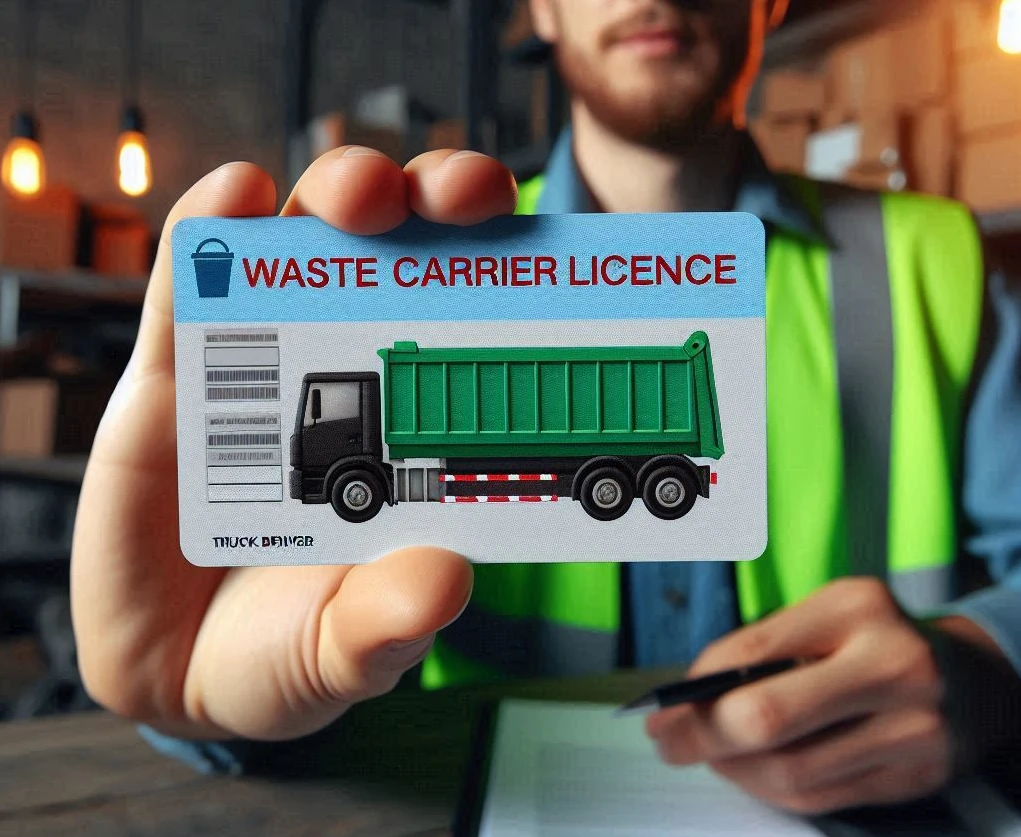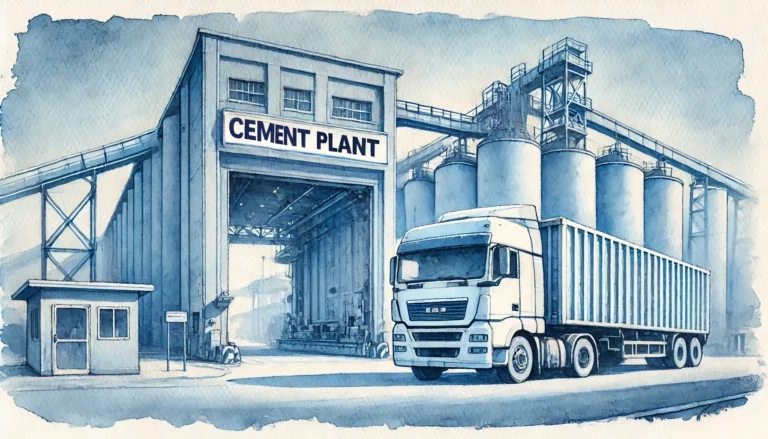Benefits of holding a waste carrier licence
The waste carrier licences are crucial for trans-border movement of such materials, particularly under EU law. Today, we will discuss what those documents mean in the context of cross-border movement of the above mentioned goods. And why it’s important for carriers to apply for them.
Do you want to order waste carrier licence? Contact us:
office@wastetransportsolutions.eu
Below are some of the issues that will be highlighted:
- Understanding the role of waste carrier licences in EU
- Advantages of having a waste carrier licence
- New regulation regarding transportation of waste within European Union
Compliance with waste handling regulations is important in order to safeguard environmental and public health. Disregard for these policies may cause harm to ecosystems and communities around them. This is why it is necessary that everyone who is connected with rubbish carriage should know well about responsibilities and value of the licence.
Let’s go deep into details related to waste carrier licences and their impact on international movement of waste.
Waste carrier licence and its role in legal and compliant EU transport
The importance of having a waste carrier licence cannot be overemphasized when it comes to the legal and compliant movement of waste. These documents are not just for the sake but they serve a significant purpose. why?
1. Definition and primary purpose
Waste carrier licences are official permissions given to individuals or firms dealing with transportation of waste in different countries. Their main aim is to regulate and monitor the transportations of waste effectively so as it is done safely, controlled and in environmentally friendly manner.
2. Key requirements and procedures
Therefore, the process of acquiring the waste carrier licence requires that one satisfies certain criteria as set out by EU regulations. This involves indicating their professional competence, financial responsibility and compliance with strict operational standards. Applicants may be subjected to extensive background checks, proofing equipment/facilities as well as observance of environmental/safety codes.
3. Demonstrating competence and financial responsibility
Waste carriers have to show their capability in handling diverse types of wastes. They must also prove that they are financially able to meet any potential liabilities arising from waste carriage. This way, only the skilled and competent personnel or organizations will be given the mandate of going on with transportation process.
4. Importance of keeping licence information up to date
Waste carriers who acquire licences must ensure that the information included in such document is up-to-date all times. This includes changes about operational details, ownership structure or contact details among others. By so doing, regulatory authorities can keep an eye on waste transport activitie. And make sure that there is transparency throughout.
5. Obeying specific conditions at EU borders
For waste transported across borders within the European Union (EU), these carriers must adhere to terms set out in their licenses. For example, they may restrict certain categories of wastes for transportation while requiring secure packages and labeling as well as prescribed routes for transport.
Thereafter, it becomes legal and environmentally sustainable waste carriage practice in this regard if such conditions are complied with by stakeholders involving waste transport activities .
Benefits of holding a waste carrier licence for cross border waste shipment activities
Waste carriers are crucial for ensuring lawful and compliant transportation of waste materials across international borders. There are many benefits that come with having a waste licence, not just to the carriers themselves but also to the environment, public health, and general sustenance efforts.
1. Ensure compliance with EU regulations on waste shipments
This way, by having a waste carrier license, operators can effectively negotiate through the maze of European Union guidelines for the movement of wastes without incurring heavy fines on their part. In this case, it becomes easier to move wastes according to its rules thus avoiding any legal issues that may result from non-compliance. Thus through conformity based on well-established guidelines, such permits instill confidence in both transporters and governing authorities during shipment process.
2. Facilitate smoother cross-border operations
Waste carriers with a valid licence are given preferential treatment at border checkpoints, reducing delays in the transportation process. This streamlined approach expedites cross-border operations, allowing for more efficient movement of waste materials while maintaining compliance with regulations. As a result, licensed carriers are better equipped to handle the complexities of international waste transport, contributing to smoother logistics and minimized disruptions in the supply chain.
3. Enhanced trust and credibility
Undoubtedly partners and clients are more likely to engage with licensed waste carriers. It provides assurance that their materials will be handled and disposed of properly in accordance with environmental standards. The possession of a waste carrier licence signifies a commitment to responsible waste management practices. This in turn instill confidence in stakeholders regarding the proper handling and disposal of their waste materials. This trust and credibility further solidify the reputation of licensed carriers within the industry. And establishes them as reliable partners in cross-border waste shipment activities.
In essence, holding a waste carrier licence not only facilitates compliance with regulations but also fosters operational efficiency and builds trust within the industry. These benefits extend beyond the carriers themselves, contributing to the overarching goals of environmental sustainability and public health protection in the realm of international waste transport.
Enhancing environmental sustainability with effective waste transport practices
1. Stopping harmful effects on the environment by controlling the movement of toxic waste
- Waste carrier licences play a crucial role in preventing environmental harm caused by uncontrolled toxic waste movement.
- Licenced carriers are responsible for ensuring the use of appropriate packaging, labeling, and handling techniques. That minimizes the risk of pollution or accidents during transit.
- For example, hazardous waste must be properly labeled and packaged to prevent leakage or spillage during transportation, reducing the potential impact on the environment.
2. Keeping people safe from the dangers of incorrect waste disposal
- Licenced waste carriers are more likely to have access to authorized treatment facilities for proper waste disposal.
- This reduces the likelihood of waste being illegally dumped or incinerated, protecting public health from the hazards of improper waste disposal.
- For instance, licenced carriers ensure that hazardous waste is transported to designated treatment facilities where it can be safely and legally disposed of, mitigating the potential risks to public health associated with incorrect disposal methods.
Taking action against illegal waste shipments
The link between waste carrier licensing and efforts to prevent, detect, and respond to illegal waste activities is undeniable. Waste carrier licences play a crucial role, serving as a fundamental tool in the battle against unauthorized waste transportation practices. By holding a valid waste carrier licence, operators demonstrate their commitment to upholding environmental regulations and ethical waste management standards. This directly contributes to the prevention, detection, and response to illegal waste activities.
The importance of waste carrier licences in fighting against illegal waste shipments
In addition to establishing clear guidelines for waste transportation, various regions worldwide have recognized the need for robust enforcement mechanisms. All in an effort to address instances of illegal waste shipments effectively. For instance, the Organisation for Economic Co-operation and Development (OECD) has highlighted the importance of waste carrier licensing in preventing such activities. By promoting accountability and compliance through penalties for violations, these regulations contribute to creating a more sustainable and secure waste transport landscape.
The successful prevention of illegal waste shipments relies mainly on a comprehensive approach. This includes cooperation among regulatory bodies, law enforcement agencies, waste carriers, and other stakeholders. Strengthening enforcement measures not only safeguards environmental integrity but also protects public health by minimizing the detrimental impact of unauthorized waste movements. Also, it reinforces the importance of holding a waste carrier licence as a means of ensuring adherence to legal requirements and ethical standards governing cross-border waste transport.
By fostering a culture of compliance and accountability through rigorous enforcement strategies, governments and international organizations advance their commitment to sustainable waste management practices while mitigating potential risks associated with illegal waste shipments.
***
Waste carrier licences are essential for safe, legal, and environmentally friendly transportation of waste materials within the EU. By getting a waste licence, operators can easily follow the complex rules of waste transport in the EU. And avoid expensive fines. Without a doubt, having a valid licence also builds trust and credibility. Partners and clients prefer working with licensed waste carriers who handle and dispose of materials correctly according to environmental standards. So don’t hesitate too long and contact us today to secure the waste carrier licence for your company.







